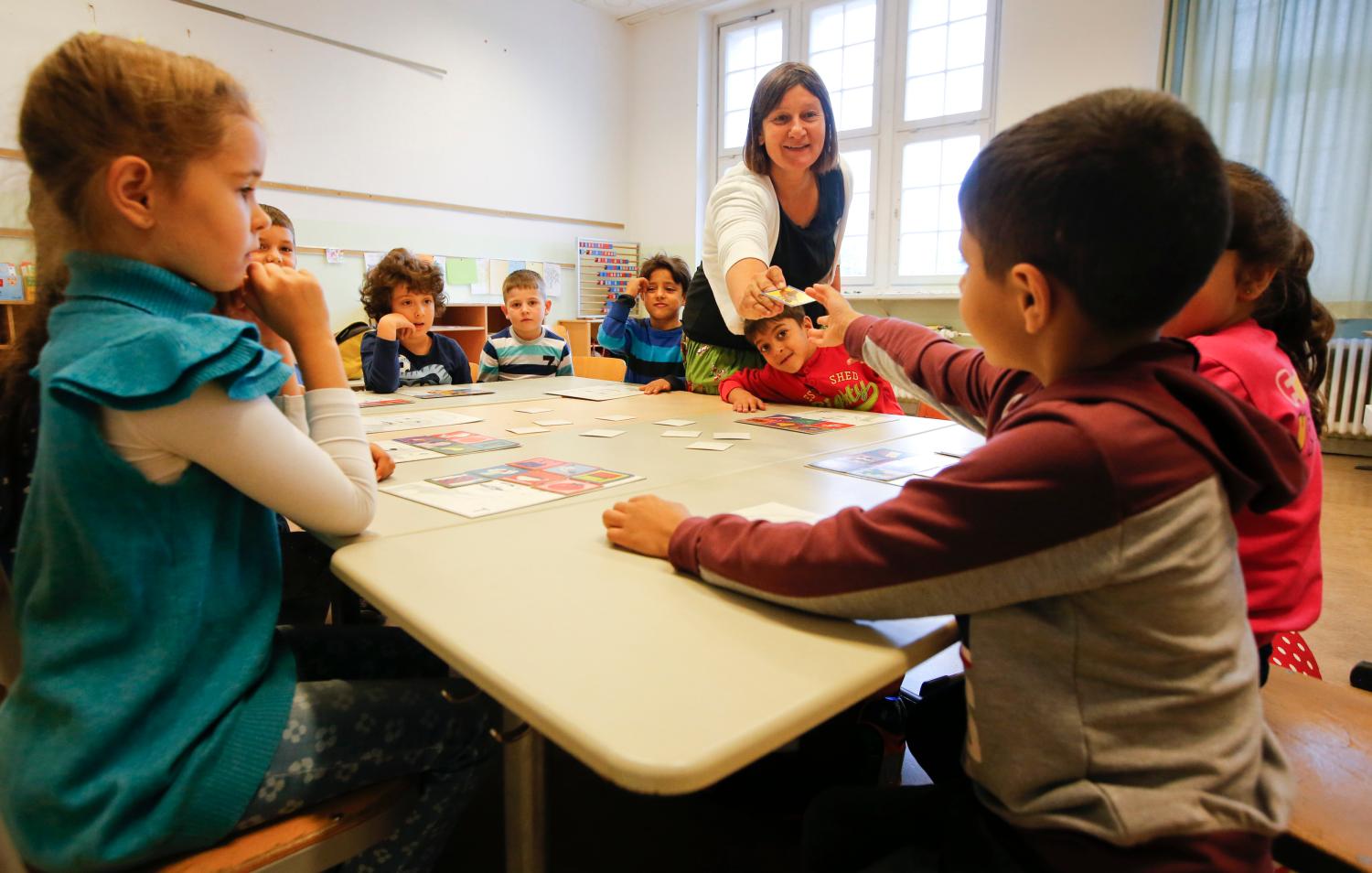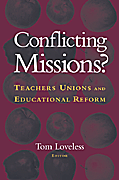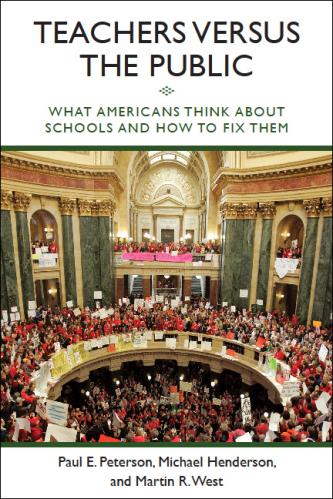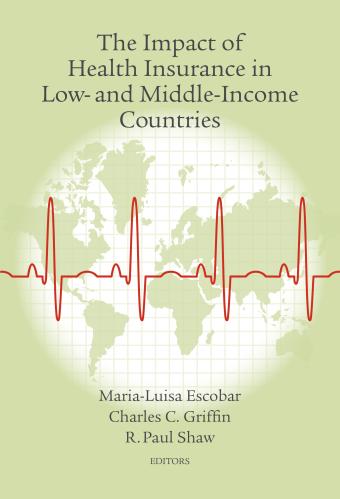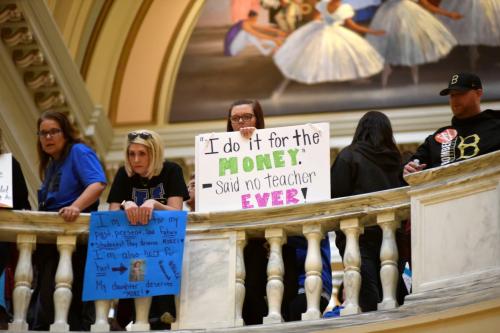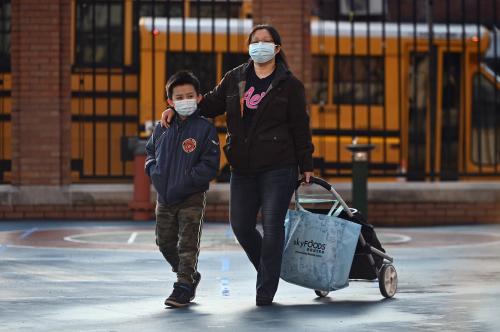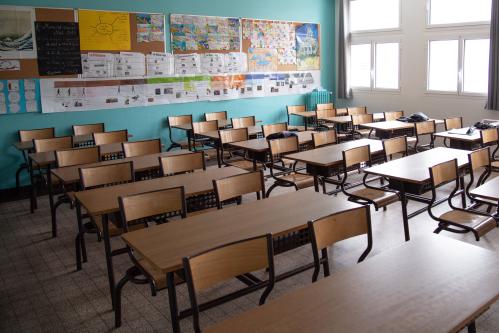It now seems clear that the coronavirus (COVID-19) will keep a large share of students from attending school in the coming weeks and months. New York, Seattle and other places have already gone down this road. Schools across the country are now preparing to provide online instruction and give students schedules of homework in advance.
But even the best and most well-intentioned efforts will mean that students suffer—especially low-income students. Fewer low-income and rural students have access to the technology necessary for online learning. Also, parents working low-income jobs (e.g., those in the personal service industries such as restaurants and hotels) will not be able to work from home or take days off. Low-income students are therefore more likely to be left alone or in environments that are less than ideal for learning.
Studies of online learning suggest not only that students learn less in online environments, compared with in person, but that disadvantaged students learn the least. And that’s true even when online teachers have experience and training with online teaching. Under the current emergency, most teachers will not have any experience at all with this approach. It’s a tough situation for everyone, but it’s most likely to harm low-income students.
How might we help the students who are already behind from falling further behind? In a recent Twitter exchange, Justin Reich of MIT and I came to a short and easy-to-implement answer: summer school. (Thanks to Sue Dynarski for initiating the conversation.) Students who struggled to learn during the coronavirus school closure period could attend in the summer to catch back up.
This, of course, would require money. I propose that the Congressional stimulus package include funding to schools based on the number of students who wish to participate in summer school. Schools might also decide to require some students to participate in summer school before passing on to the next grade, but school leaders could make this decision.
This approach has another advantage: economic stimulus. In exchange for working longer hours, teachers would earn higher incomes—at a time when their spouses and others in their communities might be seeing pay cuts or layoffs. Moreover, since one parent needs to stay with younger children when they are home, paying for teachers has an added multiplier effect on other workers. This would give a needed boost to local economies.
There are about 3 million teachers in the United States. If one-third of them continued to work, then I estimate that six weeks of summer school would cost about $8.1 billion. (This comes from multiplying one-third the total number of teachers by the prorated average salary per teacher for six weeks of additional work.)
While I suspect teachers would heed the call to continue teaching to help their students, schools might have to take emergency measures to require some teachers to participate.
This is not the only step we should take, of course. Now is a good time for schools to consider their online teaching capacity, which can be useful beyond emergencies such as this (and in preparing for a possible reemergence of COVID-19 this fall/winter). We also have to consider that many families count on schools to feed and provide other services for children, so closing schools removes a lot more than just academic learning.
Moreover, there is a good chance that we are heading into a recession. In that case, state and local funding will likely drop, just as it did in the 2008 financial crisis. This had a long-term effect on school funding that remains to this day. Federal funding to schools helped in 2008, but it was removed before state and local revenues recovered, and schools are still paying the price. Federal funding support may be necessary even after the virus fades.
Some might say, why not just cancel school now and shift the money to the summer? That would probably be illegal and would certainly be counterproductive. Cutting teacher salaries now would reinforce the economic problem rather than providing stimulus.
Yes, we can use modern technological tools to help students continue learning, at least a little, over the coming months. But sometimes it’s best to fight the old-fashioned way. Summer school seems like one very promising approach to consider.
The Brookings Institution is committed to quality, independence, and impact.
We are supported by a diverse array of funders. In line with our values and policies, each Brookings publication represents the sole views of its author(s).

